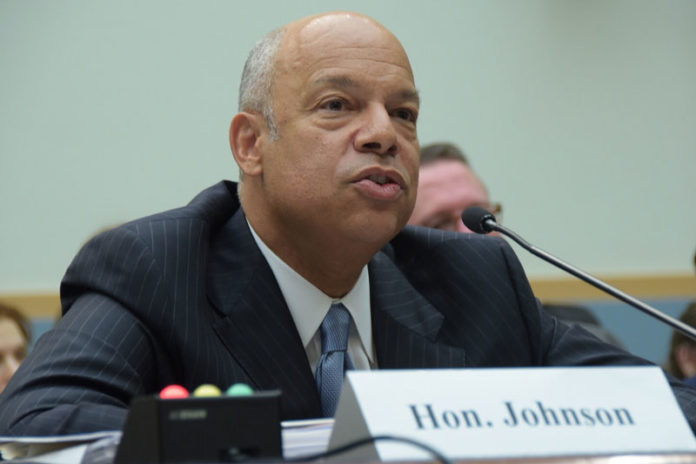The prevailing wisdom following the 9/11 terror attacks was that a single federal agency tasked with protecting America from national security threats would be more effective than the existing patchwork-bureaucracy. Thus, the Department of Homeland Security was established in 2002 to keep America safe from terrorism. Many conservatives at the time cautioned that limits on the new Department’s jurisdiction were needed to guard against inevitable “mission creep”; to no avail.
Nearly 15 years later, those fears have come true with a vengeance. Homeland Security has become the government’s third-largest Cabinet-level agency; with a jurisdiction expanded far beyond its original charter.
Like all successful government agencies, Homeland Security understands the basic law of bureaucratic physics – no matter how much power you have, always seek more. The latest move by the already mammoth Department is to claim jurisdiction over state elections; a move it justifies based on allegations that a couple of state voter databases were breached by foreign hackers.
A review of President Obama’s “Presidential Policy Directive” Number PPD/21 issued in 2013, which identifies 16 broad components of what this Administration considers “critical infrastructure,” makes clear just how broadly the government considers that it must be involved in every aspect of life in America at all levels. From “commercial facilities” to “critical manufacturing” and “transportation,” and from “communications” to “financial services” and “food and agriculture,” everything now is considered of sufficient importance to justify federal intervention.
Therefore, when Homeland Security Secretary Jeh Johnson said last week that “there’s a vital national interest in our election process,” and elections should be reclassified as “critical infrastructure” so as to fall within Homeland Security’s reach, it was but one more all-too-familiar example of mission creep that has driven the agency’s intrusive reach since Day 1.
That voting is a “vital national interest” is, in a sense, a truism. Not so obvious is why the federal government, after centuries of local and state elections being handled by state and local authorities, must now oversee what is indisputably a constitutional duty of the states. Despite the alarmism from Johnson and his colleagues at Homeland Security, elections are little more at risk of sabotage in the digital age than they were when ballot boxes could be stuffed with paper ballots.
One could argue as well that Uncle Sam’s using fear of fraud as a reason for considering elections to be part of America’s “critical infrastructure,” is a sham – as evidenced by the government’s opposition to any form of voter ID as a means of preventing fraud.
Some observers see this as a harbinger of federal “rigging” of elections. Of greater concern than conspiracy theories about the federal government overtly rigging elections, however, are the strings that always come attached to any offer of help from Washington. “I think it’s kind of the nose under the tent,” Vermont Secretary of State Jim Condos, told Politico, adding “[a]ll of a sudden [leading] to something else.”
Granting Homeland Security similar authority to that which it already enjoys in 16 other government-defined “critical infrastructure sectors,” would allow it to exercise authority over some 9,000 jurisdictions across the country involved in electoral processes. The move would be unprecedented — legally, but also in how deep its reach would penetrate into local communities.
First, it would set a slippery slope that the “threat” of an election hacking event would, in and of itself, constitute sufficient justification for the federal government to assert and exercise power it never was intended to have. Furthermore, its role in elections would be defined presumably after it asserted power over elections; leaving states with only the illusion of retaining control of their elections.
After Homeland Security sets up shop monitoring all elections, what other federal agencies will follow its “nose” into the tent? Will we see the Department of Justice claim — as it has done with local police departments – that there is a “compelling federal interest” in controlling such activities; giving it direct access to the voting booth? The possibilities for interference are endless.
Secondly, there are the sheer logistics of taking ownership of election processes. With more than 240,000 employees and a budget already exceeding $40 billion, playing election cop will only expand Homeland Security’s already huge footprint. This will add new levels of bureaucratic oversight that will make the Department even less streamlined than it is now, and more distracted to its original purpose of preventing terrorism.
Unfortunately, the affront to states’ rights that the federal power grab over elections represents appears of no concern to Big Brother’s enablers.


































